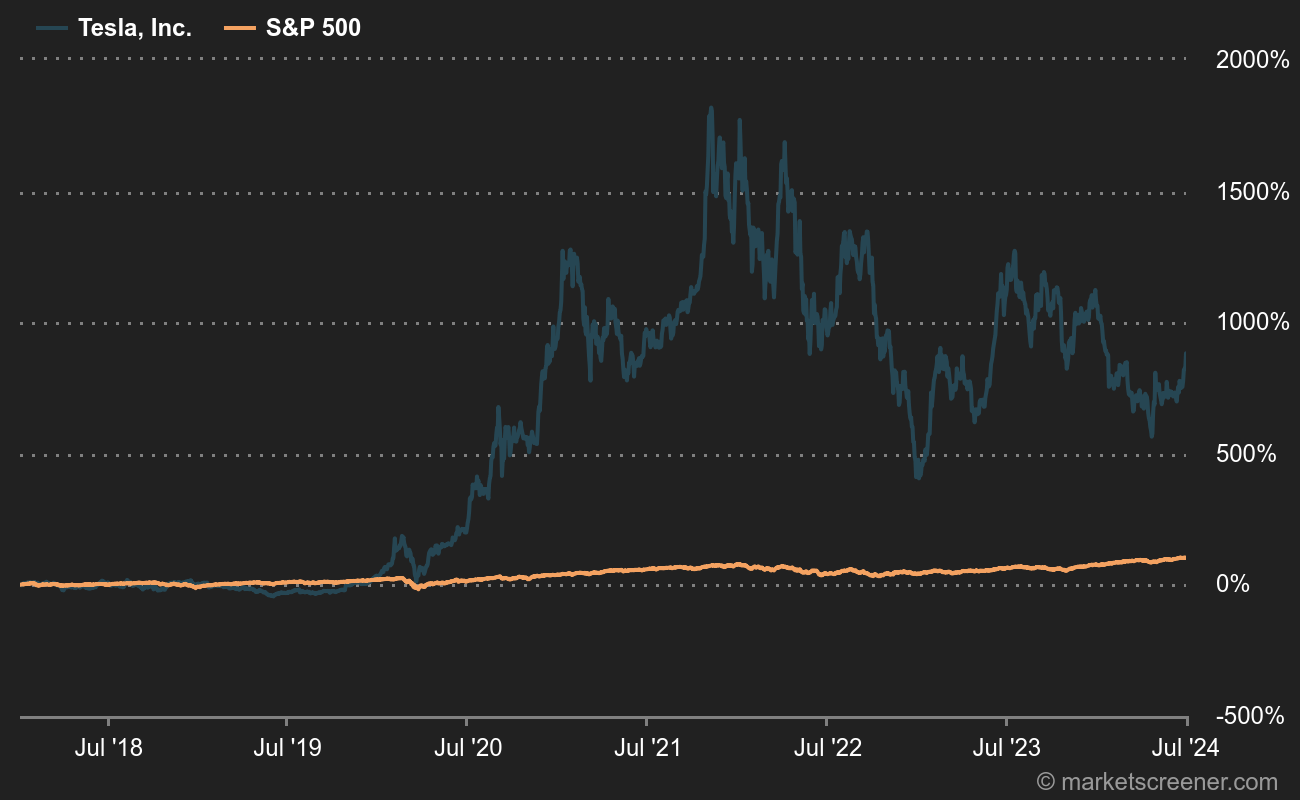At this Thursday's Annual General Meeting, Tesla shareholders will vote on Elon Musk's compensation package, valued at $56 billion. It had previously been overturned by a Delaware judge in January, who described the sum as "unimaginable". On Wednesday evening, Musk said shareholders were voting overwhelmingly in favor of approving the package and moving the company's headquarters to Texas. Official results are due to be announced later today. However, there remains the barrier of the courts, which may not validate the AGM vote.The proposed compensation package for Musk, the largest in US corporate history, includes neither salary nor cash bonus, and bases rewards on Tesla's increased market value, which could reach up to $650 billion over the ten years from 2018.

Here are other CEO compensation packages that have been the subject of fierce battles:
- In 2024, more than a third of AstraZeneca 's investors challenged the 2024 remuneration policy, which could increase CEO Pascal Soriot's pay by up to £18.9 million. However, it won the support of the required majority of votes. 3M Company shareholders rejected the annual remuneration packages of certain executives, including that of former CEO Mike Roman. BlackRock's executive compensation, including that of CEO Larry Fink, won narrow shareholder support, with around 42% of votes cast against it. Boohoo saw its executives waive their annual bonuses in May and cancelled plans to increase executive rewards after shareholder backlash.
- In 2023, former BP Plc CEO Bernard Looney saw more than $40 million stripped from his compensation after the British oil giant concluded that he had misled the board about personal relationships with colleagues. Telecom Italia shareholders rejected the remuneration policy after lead investor Vivendi criticized the criteria for awarding bonuses to CEO Pietro Labriola.
- In 2022,Intel shareholders rejected compensation packages for senior executives, including a payment of up to $178.6 million to CEO Pat Gelsinger.
- In 2021, Rio Tinto shareholders rejected executive compensation packages, in reaction to the destruction of ancient rock refuges in Western Australia the previous year. Former McDonald's CEO Steve Easterbrook agreed to return compensation worth $105 million in shares and cash to settle a lawsuit over alleged business lies. That same year, General Electric shareholders rejected executive compensation packages, including a payment of up to $230 million to CEO Larry Culp. Investors in British supermarket group Morrison's overwhelmingly rejected its 2021 remuneration report. More than half of Halliburton 's shareholders voted against its proposed executive compensation plan. Italian bank UniCredit boss Andrea Orcel narrowly avoided a shareholder revolt against his remuneration package, securing just 54% of votes at a general meeting after major investor BlackRock voted against it.
- In 2019, CBS Corp fired Leslie Moonves for cause and denied him a $120 million severance package after the former CEO was accused of sexual harassment and assault that allegedly took place before and after he joined the company.
- In 2017,Uber co-founder and CEO Travis Kalanick was forced to resign after a series of scandals rocked the company, including allegations of sexual harassment and a toxic corporate culture. Shareholders then sued the board, alleging that it had failed to adequately oversee Kalanick and allowed the scandals to occur. After a major data breach exposing the personal information of millions of customers,Equifax 's CEO received significant criticism for his handling of the crisis and a generous bonus. Shareholders took legal action alleging that the board had failed in its duty to adequately supervise the CEO. BP Plc cut CEO Bob Dudley's 2016 remuneration package by 40% after a wave of shareholder revolts.
- In 2016, a shareholder lawsuit claimed Viacom and CBS Corp executive chairman Sumner Redstone had been improperly paid millions while "physically and mentally incapacitated".
- In 2011,Occidental Petroleum CEO Ray Irani was criticized for excessive pay after his compensation increased by 40% in 2009 to $31.4 million. Shareholders pushed for seats on the board.
- In 2002, after an accounting scandal that led to financial fraud, shareholders sued Worldcom for excessive compensation awarded to executives, including the CEO.

 By
By 








